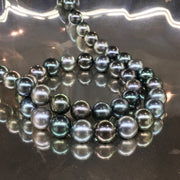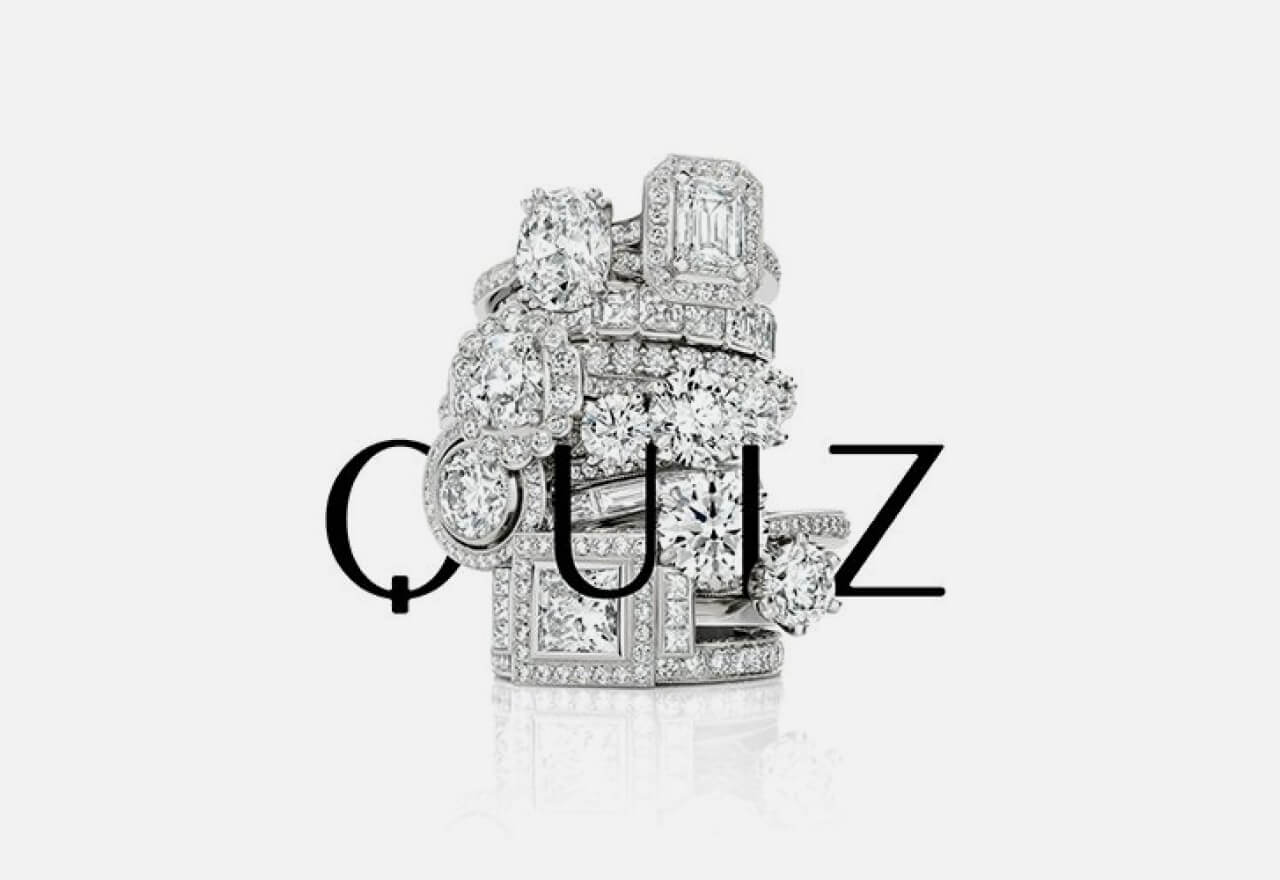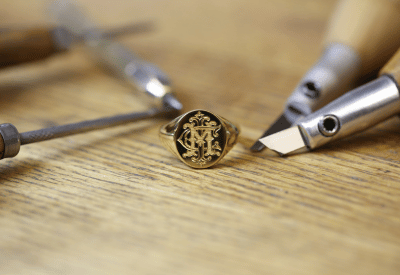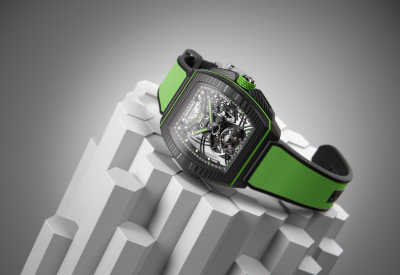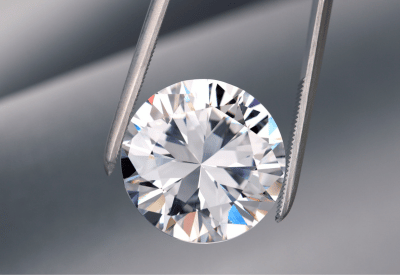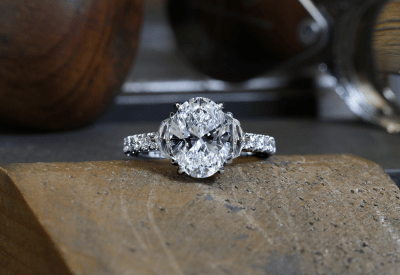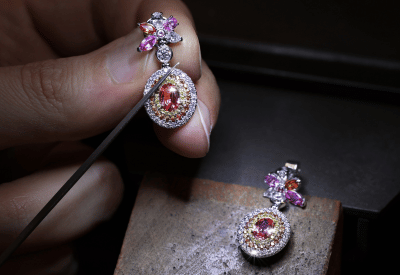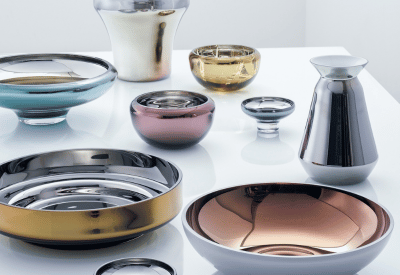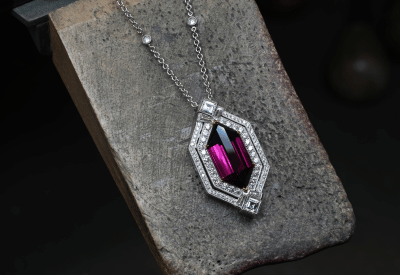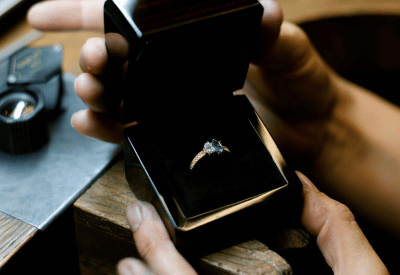

Jewellery Maintenance & Care Guide
Our 5 Top Tips for Keeping Your Jewellery Sparkling
You probably weren’t thinking about jewellery maintenance the day you first wore that stunning new piece. Maybe it was your engagement ring, or a pair of earrings or a simple tennis bracelet. Whatever the item, we’re guessing it sparkled and shone – just like a new piece should. The truth is, no matter how well made a piece of jewellery is, it will start to degrade over time. Paying attention to jewellery maintenance will reward you with jewellery that looks as good as it did the first time you wore it.
5 Top Care & Maintenance Tips
- Check your engagement rings and wedding bands yearly by a trusted jeweller.
- Clean your jewellery regularly – this can be done by a jeweller or at home generic window cleaner and soft-bristled toothbrush (only for certain gemstones).
- Store jewellery safely – either in a jewellery box or jewellery pouch.
- Remove jewellery when conducting any kind of rigorous physical activity such as swimming, going to the gym and cleaning.
- Remove all jewellery at night prior to going to bed as constant rubbing against your sheets over time causes damage to claws, delicate links and fine detailing.
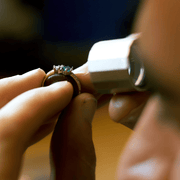
How to Care for Diamonds
- Check your engagement rings and wedding bands yearly by a trusted jeweller. At Fairfax & Roberts, we offer our clients complimentary jewellery checks where we review each stone setting to ensure the gemstones are secure. We also give your treasured pieces a ‘spa clean’ to remove any dirt and grime build up and enhance the sparkle.
- Between your jeweller visits, you can clean your diamond jewellery at home. Use a generic window cleaner and soft-bristled toothbrush to remove oil build up from hand creams and general everyday wear.
- Ensure to remove jewellery when conducting any kind of rigorous physical activity. This includes, swimming, going to the gym, gardening, cleaning and sleeping.
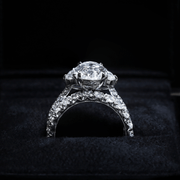
How to Care for Coloured Gemstones
- Sapphires & Rubies – Between your jeweller visits, you can clean your diamond jewellery at home. Use a generic window cleaner and soft-bristled toothbrush to remove oil build up from hand creams and general everyday wear.
- Emeralds – It is recommended that emeralds are not an everyday gemstone but only worn on occasions due to their brittle nature. Emeralds should only be cleaned by a trusted jeweller because they are susceptible to thermal shock. Any sudden change between hot and cold water can increase the chances of the stone cracking.
- Aquamarine – Although an aquamarine gemstone has less inclusions than an emerald, it is still susceptible to thermal shock therefore, should only be cleaned by a trusted jeweller.
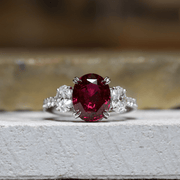
How to Care for Metals
- 18ct yellow gold, 18ct white gold & platinum – Keep the metal clean by soaking in warm soapy water and buffing the surface with a generic polishing cloth. If you notice scratches on the metal, a jeweller can buff these scratches.
- Rhodium Plating for 18ct white gold – Every piece of 18ct white gold is rhodium plated to enhance the bright white appearance of the metal. Over time, the layer of rhodium wears away giving the jewellery a slightly dull look. By bringing your pieces to a jeweller, they can re-rhodium plate your pieces to bring back the original white metal appearance.
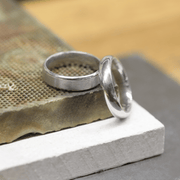
How to Care for Different Jewellery
Necklaces – avoid sleeping in necklaces as your hair can get caught in the chain. When storing necklaces, clip the clasp so the chain does not tangle.
Earrings – ensure the butterfly clips are secured on the earrings posts so they do not go astray in your jewellery box. Regularly check the tension of the butterfly clips as they do tend to loosen over time.
Rings – always consult a jeweller if you have any concerns with rings, particularly rings with large or coloured gemstones. Also, contrary to urban legend, never boil a ring to clean as this can cause thermal shock resulting in a shattered gemstone.
Bracelets – with wear, bracelet clasps can loosen over time. If you can start to feel the bracelet clasps not securing properly, visit a jeweller for a professional assessment and service.
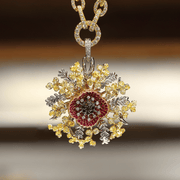
How to Care for Pearls
- Gently wipe pearls with a soft, microfibre cloth after wear. If required, use warm soapy water (pure soap only) to remove any makeup, then ensure pearls are completely dry.
- Avoid wearing pearls in water (salt or fresh water) as it will perish the silk string pearls are strung on. Chlorinated water will also permanently damage the finish of the pearl causing a dull pearl with no lustre.
- Store pearls in a pouch and box. Avoid storing pearls with other jewellery to prevent scratching on the surface of the pearl.
- Check stringing of pearls for any stretch or fraying and restring when necessary. Ideally, pearls should be restrung every 24 months depending on the frequency of wear.
- Avoid direct contact with perfume, makeup, tanning creams and lotions to avoid tarnishing, marking or discolouring the pearls. If the pearls are exposed to any of these, you may wipe them over with a soft damp cloth.
